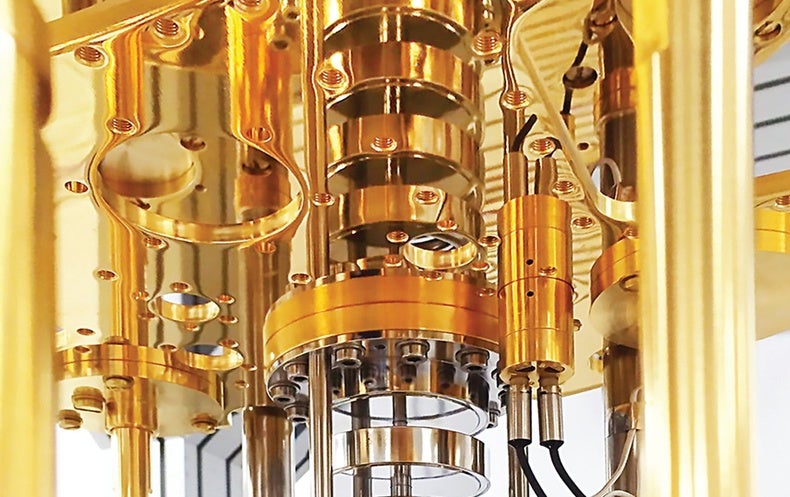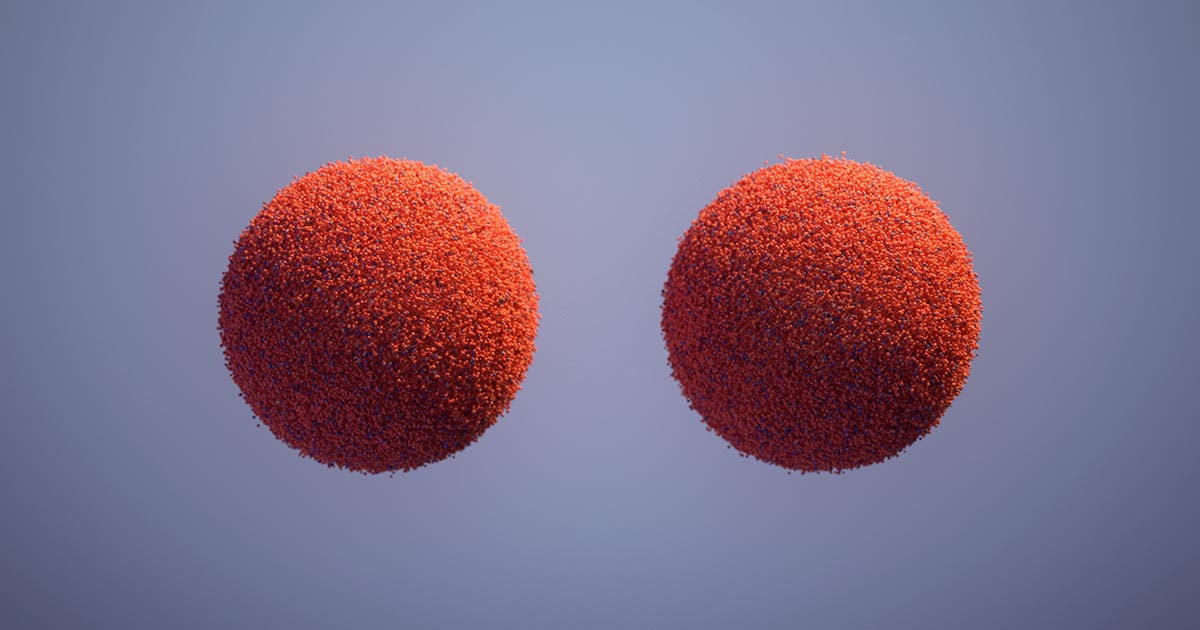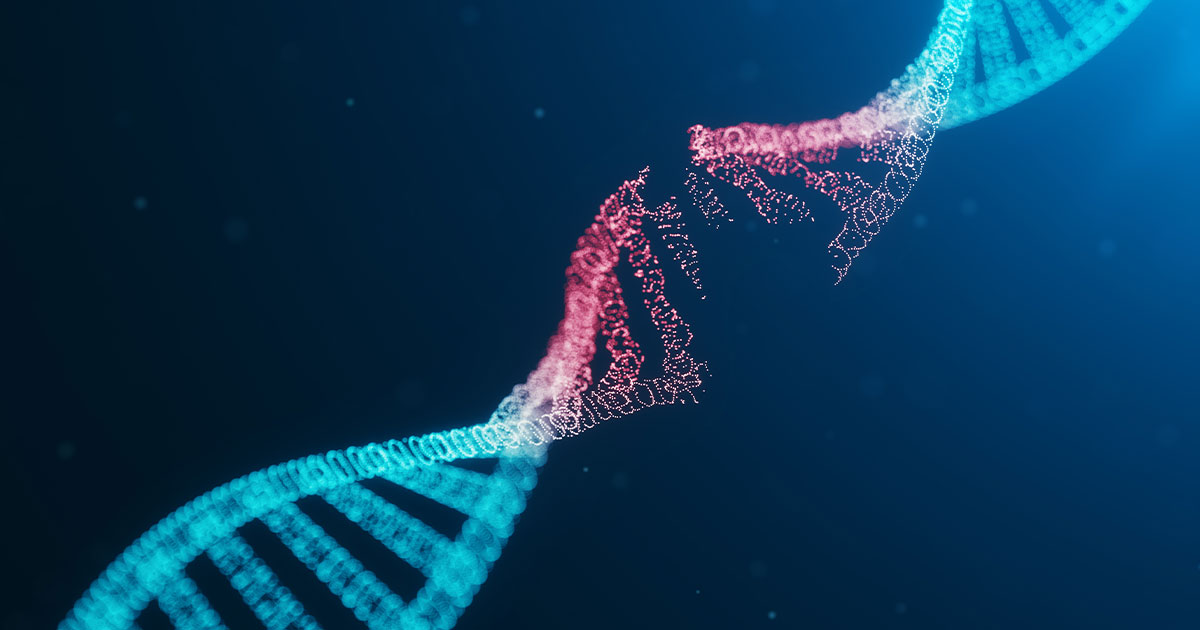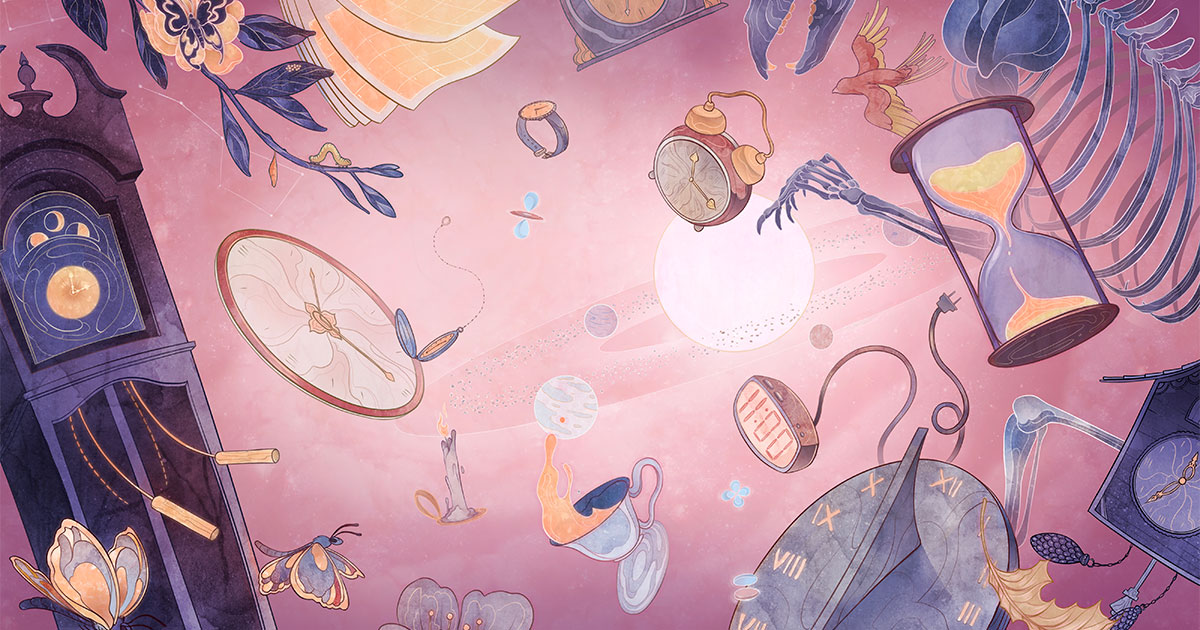The emerging picture does more than reconfigure our view of what biomolecules in our cells are up to as they build an organism — what logic they follow to create complex life. It might also help us understand why living things are able to survive at all in the face of an unpredictable environment, and… Continue reading Biologists Rethink the Logic Behind Cells’ Molecular Signals
Category: Quantum Stuff
New Radioactivity Measurement Could Boost Precision of Dark Matter Experiments
A concentration of one part per billion is like a pinch of salt in 10 tons of potato chips—and scientists can now find radioactive particles at concentrations millions of times smaller. In the Journal of Analytical Atomic Spectrometry, researchers describe successfully detecting radioactive uranium and thorium hiding among something like a million billion other atoms.… Continue reading New Radioactivity Measurement Could Boost Precision of Dark Matter Experiments
Banach-Tarski and the Paradox of Infinite Cloning
Imagine two friends hiking in the woods. They grow hungry and decide to split an apple, but half an apple feels meager. Then one of them remembers one of the strangest ideas she’s ever encountered. It’s a mathematical theorem involving infinity that makes it possible, at least in principle, to turn one apple into two.… Continue reading Banach-Tarski and the Paradox of Infinite Cloning
To Learn More Quickly, Brain Cells Break Their DNA
Faced with a threat, the brain has to act fast, its neurons making new connections to learn what might spell the difference between life and death. But in its response, the brain also raises the stakes: As an unsettling recent discovery shows, to express learning and memory genes more quickly, brain cells snap their DNA… Continue reading To Learn More Quickly, Brain Cells Break Their DNA
To boldly go… publishing my grant proposal in RIO — Mostly Physics
(The RIO Journal’s first editorial provides good context for this undertaking. A press release on the publication can be found at RIO.) I must be honest: it was an instinctively scary prospect to publish my grant proposal, even after being funded. It condenses years of toil and accumulated knowledge – as an early-career scientist, most of… Continue reading To boldly go… publishing my grant proposal in RIO — Mostly Physics
Tarzan Wasn’t for Her – Issue 100: Outsiders
Elaine Morgan had sass. In Descent of Woman, published in 1972, she asked her readers to take science into their own hands. “Try a bit of fieldwork,” she suggested. “Go out of your front door and try to spot some live specimens of Homo sapiens in his natural habitat. It shouldn’t be difficult because the… Continue reading Tarzan Wasn’t for Her – Issue 100: Outsiders
If Only 19th-Century America Had Listened to a Woman Scientist – Issue 100: Outsiders
Human-induced climate change may seem a purely modern phenomenon. Even in ancient Greece, however, people understood that human activities can change climate. Later the early United States was a lab for observing this as its settlers altered nature. By 1800 it was known that the mass clearing of forests raised temperatures in the Eastern U.S.… Continue reading If Only 19th-Century America Had Listened to a Woman Scientist – Issue 100: Outsiders
The New Thermodynamic Understanding of Clocks
In 2013, a masters student in physics named Paul Erker went combing through textbooks and papers looking for an explanation of what a clock is. “Time is what a clock measures,” Albert Einstein famously quipped; Erker hoped a deeper understanding of clocks might inspire new insights about the nature of time. But he found that… Continue reading The New Thermodynamic Understanding of Clocks
How to Make Sense of Contradictory Science Papers – Issue 100: Outsiders
The science you can come across today can often appear to be full of contradictory claims. One study tells you red wine is good for your heart; another tells you it is not. Over the past year, COVID-19 research has offered conflicting reports about the overall effectiveness of wearing a mask. As scientists debate what… Continue reading How to Make Sense of Contradictory Science Papers – Issue 100: Outsiders
How quantum entanglement works – Jarvis Blog
Quantum entanglement is a physical phenomenon in which two particles remain connected over long distances so that the actions performed on one particle also have an effect on the second particle. If it sounds mind-boggling, it’s because it is. Albert Einstein, who first discussed the idea of quantum entanglement in a joint paper with Boris… Continue reading How quantum entanglement works – Jarvis Blog








